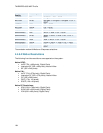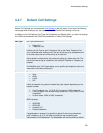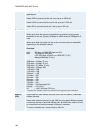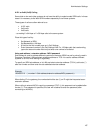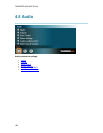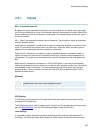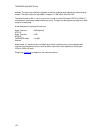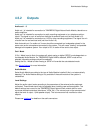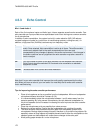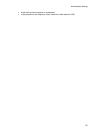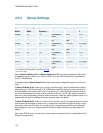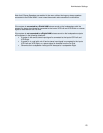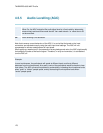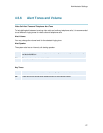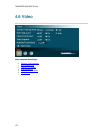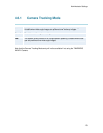
TANDBERG 6000 MXP Profile
172
4.5.3 Echo Control
Mic 1-3 and Audio 4
Each of the 3 microphone inputs and Audio input 4 has a separate acoustic echo canceller. One
echo canceller per input provides more sophisticated control than having one common canceller
for all microphones.
In addition to echo cancellation, the system has built-in noise reduction (NR). NR reduces
constant background noise (e.g. noise from air-conditioning systems, cooling fans etc.). In
addition, a high pass filter (Humfilter) reduces very low frequency noise.
On
Echo control is normally set to On to prevent the far end from hearing their own
audio. Once selected, echo cancellation is active at all times. The echo canceller
continuously adjusts itself to the audio characteristics of the room and
compensates for any changes it detects in the audio environment. If the changes in
the audio conditions are very significant the echo canceller may take a second or
two to re-adjust.
Off
You can choose to switch off the echo canceller for the available audio sources.
Echo Control should be switched Off if external echo cancellation or playback
equipment is used.
On+NR
Activates both Echo Control and Noise Reduction.
Note that it is your echo canceller that improves the audio quality experienced by the other
site. When you hear an echo of your own audio it is most likely the far end’s echo canceller
that is malfunctioning.
Tips for improving the echo canceller performance:
Place all microphones as far as possible from the loudspeakers. Minimum loudspeaker-
microphone distance should be 2 meters (6.5 ft).
It is recommended to place the microphones between 1 and 2 meters away from the
persons speaking. By using several microphones, the ratio distance loudspeaker-to-
mic/mic-to-speaker can be increased. Increasing this ratio improves the echo canceller
performance.
Place the microphones as far as possible from noise sources.
Reduce the volume setting. Ensure that the loudspeakers do not distort the audio.
The echo canceller tries to estimate the echo path from the speaker system to the
microphones. Moving objects change this path; therefore try to avoid moving objects. Be
especially aware of large objects and objects placed close to either the microphone or the
speaker system as these objects will cause severe changes to the echo path.
Avoid putting paper sheets etc. on the microphone.



